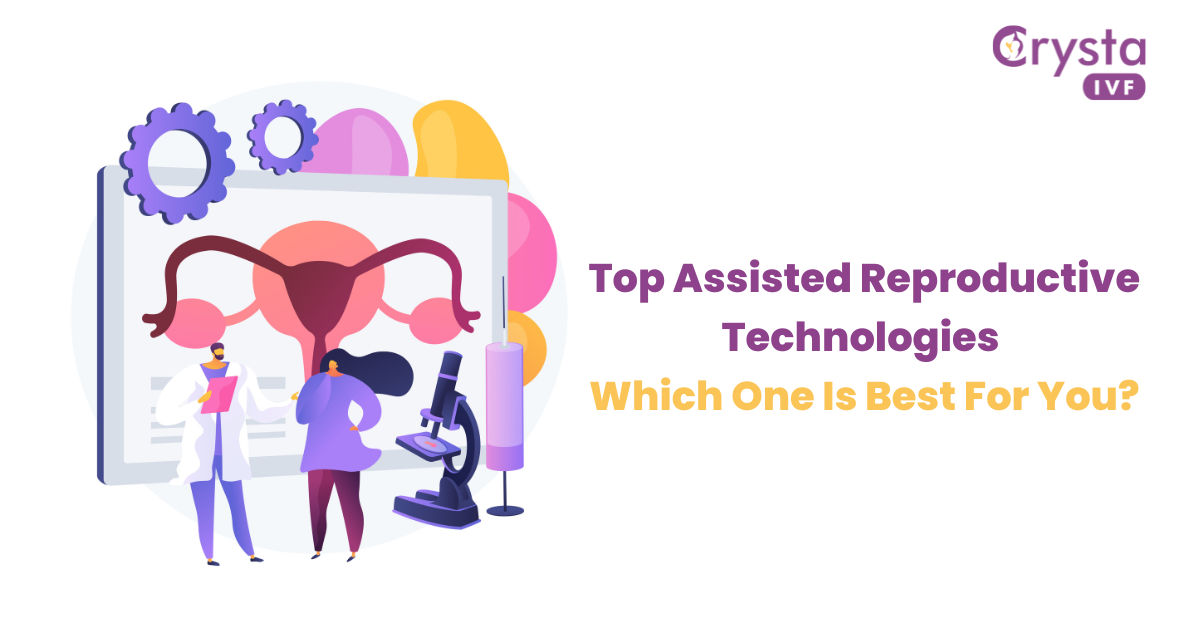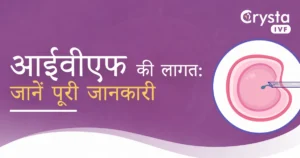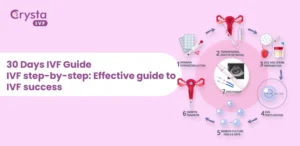When you’re trying to get pregnant, you might wonder what fertility treatments would be the best for you. In the past, when infertility was not well understood, a couple who could not conceive had few options.
However, in more recent years science has advanced to offer new fertility treatments that increase the chances of conception. There are many different types of treatments available, and they each have their own benefits and drawbacks. That is why it is important to understand which one is right for you and your spouse.
Many couples don’t know where to start when looking into fertility treatments. If you are new to the world of assisted reproductive technology or want more information on some of the most common procedures, keep reading.
The information below will explain all of the ins and outs of each different type of fertility treatment, as well as help you determine which option would be best for your family.
When Do You Need Fertility Treatment?
Fertility treatments are generally recommended to those whose ability to conceive is compromised due to certain health conditions or age.
When a couple is unable to conceive a child even after regular unprotected intercourse for over a year, then they might need to see a fertility doctor as they might be diagnosed with some kind of infertility that requires medical interventions.
Infertility is a growing problem among men and women of reproductive age. It is estimated that close to 1 out of 6 couples suffer from infertility. Earlier it was assumed that infertility is just a female’s problem. However, it is a myth. In fact, almost half of all infertility cases involve male infertility factors.
Therefore, it becomes essential to understand both male & female factors that contribute to infertility.
Factors Affecting Female Infertility:
The most common reasons that keep you from getting pregnant include –
- Blocked/Damaged fallopian tubes
- Endometriosis
- Polycystic ovarian syndrome (PCOS)
- Problem with the quality of egg
- Low egg reserve
- Ovulation problem
- Hormonal problems
- Pelvic inflammatory disease
- Woman’s age
- Unhealthy lifestyle
Factors Affecting Male Infertility
For male infertility, these are the most common factors that may require infertility treatment –
- Low Sperm Count
- Poor Quality Sperm
- Malformed sperm
- Varicocele (enlargement of veins in the scrotum)
- Chronic health problems like Diabetes, Hypertension, etc.
- Stress & Depression
- Genetic Disease
- High Consumption of alcohol
- Environmental factors (Excess heat & harmful toxicants exposure)
- Hormonal disorders
If you’ve been trying to conceive for more than a year with no success, it’s possible that you’re experiencing infertility.
Infertility can be caused by several things, such as problems with either you or your partner, or a combination of different factors. The sooner you get in touch with a fertility specialist, the better, as waiting too long might make the issue worse.
Your fertility doctor will run some fertility tests to be able to diagnose the conditions that are causing trouble conceiving. These tests may include ovarian reserve testing, hormone blood test, sperm analysis, genetic testing, or diagnostic surgeries like hysteroscopy or laparoscopy to evaluate a woman’s pelvic region.
It is possible that in some infertility cases, doctors might not find concrete reasons for your inability to conceive. In such cases, couples are generally diagnosed with ‘unexplained infertility’.
Based on your diagnostic tests report, your previous pregnancy & medical history, and your personal need, your healthcare provider will recommend the best infertility treatment options available to you.
Advanced Fertility Treatment Options:
In Vitro Fertilization (IVF)
Simply put, in-vitro fertilization or IVF process involves fertilizing an egg outside of the body (in a lab). The fertilized egg (which has all the traits of a human) is then transferred back into the woman’s body where it can be implanted and grow into a baby.
IVF has been around for more than 44 years, and it has become much more advanced since the first IVF baby was born in 1978. In fact, there are many types of IVF treatment available today.
The main reason that IVF is so successful is because of the precision required to create an environment suitable for fertilization in the lab.
Why Choose IVF?
In Vitro Fertilization (IVF) is a better fertility treatment options, in case of-
- Female or male infertility factors
- When another fertility treatment hasn’t resulted in success
- Unexplained infertility
- Fertility preservation for cancer or other medical conditions
- High risk of genetic disease
IVF with Intracytoplasmic Sperm Injection (ICSI)
ICSI is one of the oldest forms of assisted reproductive technology. However, it has become more popular in recent years because it offers the highest chance of success. ICSI is when a doctor injects a man’s sperm directly into an egg. The man’s sperm is in a small container and is sent through a catheter that is inserted into the patient’s cervix. Once in the patient’s uterus, the sperm is able to fertilize the egg.
Why Choose IVF with ICSI?
Your fertility doctor can recommend ICSI treatment in the following cases –
- Low sperm motility
- A genetic condition that affects sperm quality
- Low Sperm count
- Abnormally shaped sperm
- You’ve had failed IVF cycle before
- You’re using frozen low-quality sperm in your treatment
- You have a disease or injury that prevents sperm from reaching the ejaculate
Fertility Preservation or Cryopreservation
Cryopreservation is a technique to save and protect eggs, sperm, embryos, and reproductive tissues to retain fertility. Fertility preservation is a crucial step in protecting your ability to have children in the future.
Why Choose Fertility Preservation?
- You have certain health conditions & diseases that may risk your fertility in future
- You wish to delay having children for personal reasons
- You’re having cancer treatment that may cause infertility
- You’re having surgery such as vasectomy
Intrauterine Insemination (IUI)
IUI, or intrauterine insemination, involves filtering and preparing a man’s sperm to be placed directly inside a woman’s uterus during ovulation.
IUI is a low-risk procedure and can be an effective treatment for couples who are trying to get pregnant but are unable to do so through conventional intercourse.
Why Choose IUI?
- Female or Male infertility factors
- Unexplained infertility
- You’re using donor sperm
- If timely intercourse or fertility medication failed to help you conceive
Donor Programme
Donor gametes i.e. using donor egg or sperm cells, are generally recommended to those who are unable to use their own egg & sperm during fertility treatments like In Vitro Fertilization (IVF) or intrauterine insemination (IUI).
Under the donor program, a donor (who’ll be young and have a better quality of eggs & sperm) will be chosen to provide gametes. The donor egg or sperm is then fertilized in a laboratory to be able to transfer the resulting embryo to the recipient’s uterus.
Why Choose Donor Gametes?
- Age-related infertility
- If there is a risk of transferring genetic disease.
- Early menopause
- Other past surgeries that damaged ovaries
- Severe Male Infertility
- Post-cancer treatment
Despite these there are several types of Assisted Reproductive Technologies (ART) involving different techniques & procedures depending on the type of infertility and your medical condition. This also includes Zygote intrafallopian transfer (ZIFT) & Gamete Intrafallopian Transfer (GIFT).
Getting a Consultation From a Fertility Specialist
When it comes to fertility treatments, there are a few different options available that offer similar benefits. However, it is important to keep in mind that all of these procedures come with certain risks and potential side effects.
If you are trying to decide between the different options, be sure to talk with your doctor about what your goals are and how long you want the treatment to last. They will be able to help you determine if one procedure is better for you than the others.
Renowned fertility experts at Crysta IVF specialize in providing almost all types of advanced fertility treatment options using advanced medical technologies. So be sure to get a personalized consultation from the best fertility clinic in Noida to make your parenthood possible.




